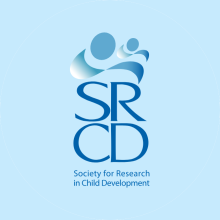April 2013 Spotlight on the SRCD Policy Fellow: Christine Fortunato, Ph.D.
2012-2013 Federal Executive Branch Policy Fellow
I am a first year Executive Branch Policy Fellow at the Office of Planning, Research and Evaluation (OPRE) within the Administration for Children and Families (ACF). OPRE serves as an advisor to the Assistant Secretary on increasing the effectiveness and efficiency of programs to improve the economic and social well-being of children and families. For my reflection on the SRCD Policy Fellowship experience, I am answering questions frequently asked by individuals who are interested in applying to the Fellowship.
What Projects Are You Working On?
I have worked on a wide-range of projects, focusing on low-income children and their families. These project topics include toxic stress in early childhood; children's emotional and social development; child care and early education programs; coaching as a professional development strategy; and integration of innovative methodologies in prevention research.
What Does a Typical Day as a SRCD Policy Fellow Entail?
My day-to-day experiences vary greatly, but I have chosen the following day as a “typical” representation of my Fellowship experience:
8:45-9:25 am - I arrive at OPRE and begin responding to the many e-mails that have accumulated in my inbox overnight.
9:30-10:30 am - I review and edit a draft of a research poster from the contractors involved in the Head Start Classroombased Approach to Resources for Emotion and Social Skill Promotion (CARES) project. CARES is a large-scale demonstration of three social-emotional prevention enhancements implemented in a nationally representative sample of preschoolers in Head Start. The poster findings underscore that intensive and standardized professional development and technical training was needed to ensure that the program enhancements were implemented with fidelity (i.e., the extent to which the intervention was delivered as it was originally planned).
On that day, working on the poster review task hones my skills for providing constructive criticism and my abilities to effectively collaborate with contractors to ensure accessibility of these research findings to a diverse audience of researchers, practitioners, and policymakers. On the whole, working on this project highlights the importance of examining supports necessary for achieving implementation fidelity during the scaling up process of evidence-based prevention programs.
10:30-10:55 am - I respond to MORE emails.
11:00 am-12:30 pm - I participate on a conference call with the OPRE project officer, contractors, and subcontractors working on the Head Start Best Practices in Coaching project. The project’s purpose is to develop design options for a research study that will provide strong evidence for the best and most efficient practices in coaching (i.e., a mechanism for delivering profession development) within the context of Head Start. The goal of the call is to discuss the annotated outline for the review of several experimental design options for estimating the effect of individual intervention components.
On that day, I am able to hear expert opinions on a topic that is new to me, and interject my thoughts and ideas about an exciting new research idea. On the whole, working on this project provides me with fantastic opportunity to add coaching to my area of expertise, while at the same time learning more about innovative methodological techniques that focus on practical ways to optimize prevention programs.
12:30-1:00 pm - I eat lunch and talk with other SRCD Fellows at OPRE.
1:00-2:30 pm – I begin drafting a two-page brief on the similarities and differences between the toxic stress and trauma to aid in informing the Assistant Secretary of Policy on these topics. I am given the leadership role in writing a brief report on complex research topics, because it is closely related to my graduate work on the psychophysiological and contextual correlates of stress in childhood. April 2013 Policy Watch Unlike my previous experiences writing journal articles, this task fosters my ability to write a succinct and informative product that is digestible to policymakers. It also allows me to collaborate with other OPRE scientists to gain further insight on the practical implications of toxic stress and trauma.
2:30-3:30 pm - After responding to EVEN MORE e-mails, I travel via metro to the SRCD office.
3:30-5:30 pm - I attend the monthly SRCD seminar with the other Executive Branch and Congressional Fellows and the SRCD Office of Policy and Communication staff. These seminars involve updates from each Fellow to learn about each other’s unique experiences and discussions with guest speakers on policy-relevant information. For instance, Dr. Olivia Golden from the Urban Institute gave an informative talk on how vulnerable children are caught in the crossfire of the national and state budget crises.
How Do You Feel About the Fellowship Experience Overall?
Overall, being an SRCD Policy Fellow has been a phenomenal professional development opportunity providing me with an extraordinary group of mentors within OPRE, SRCD, other federal agencies and programs, contracting firms, and academia. It has also afforded me the unique opportunity to apply my interdisciplinary training in early childhood development, psychophysiology, and prevention science to policy-relevant work that aims to foster the well-being of lowincome children and families nationwide.
